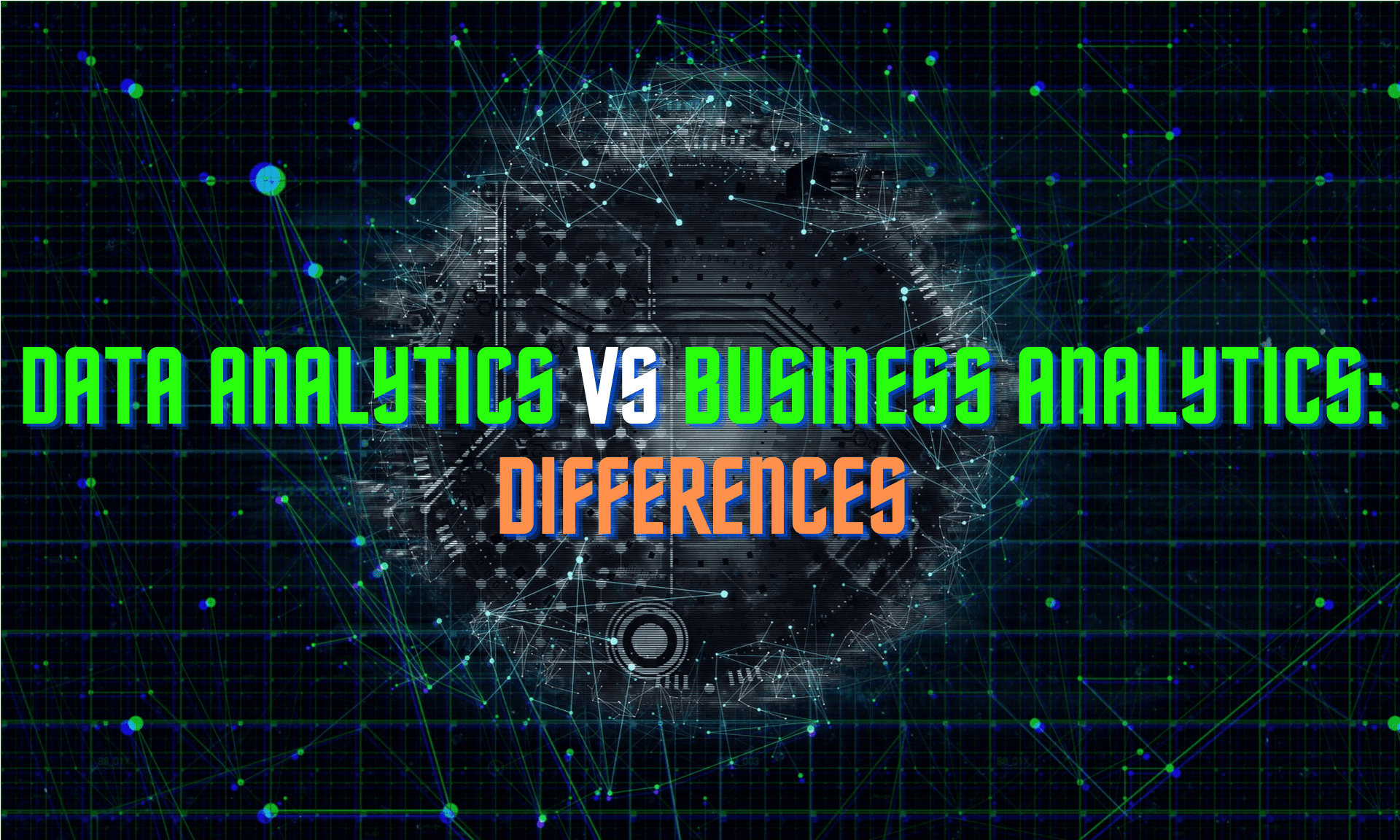
Data Analytics and Business Analytics are two distinct yet closely related disciplines, providing organizations with the tools they need to make informed decisions. With the use of technology and sophisticated analytical tools, businesses can gain invaluable insights into their operations and customer behaviors. In this article, we will discuss the differences between these two forms of analytics so that you can decide which is best for your company’s needs.
What is Data Analytics?
Data analytics and business analytics are two terms that may be confusing to many, as they are often used interchangeably. However, these two terms have very different meanings and different applications in the business world. Data analytics is the process of collecting, analyzing, and interpreting data in order to draw meaningful conclusions from it. Business analytics focuses more on using those data-driven insights to inform decisions related to operations and strategy.
Data analytics is a growing field with increasing opportunities for those who are adequately trained in it. Data Analytics Training provides the skills and knowledge necessary to extract insights from data and make informed decisions. With the right approach, individuals can start their journey into data analytics and become successful in this exciting field. Knowing the fundamentals of data analytics is essential to be able to understand its applications, benefits, and implications.
Overview of Business Analytics
Data analytics and business analytics have become indispensable tools for businesses in the modern world. With a wealth of data available to companies, it is essential to use this data efficiently and effectively in order to gain a competitive advantage. By comparing the two fields, it becomes clear that while they are closely related, there are important differences between them. This article will explore the distinction between data analytics and business analytics, and explain why each one is necessary for organizations today.
Data vs. Business Analytics
Data analytics and business analytics are two distinct but related disciplines that develop different insights for businesses. The main purpose of both is to help organizations better understand their data so as to inform decision making and drive success. However, the difference between the two lies in their scope and approach. Data analytics relies on collecting and analyzing large amounts of data while business analytics focuses more on understanding the behavior, trends, customers, and operations of an organization.
Applications and Benefits of Business Analytics
- In today’s world of technology, data and business analytics are two powerful tools that can help businesses gain insights into their operations and stay competitive. Data analytics is the process of collecting and analyzing large data sets to derive meaningful information about a particular problem or subject.
- Business analytics, on the other hand, is the practice of using analytical techniques to gain insight into operations and make decisions that will improve profitability. Both have become essential components of any successful business, with each providing distinct advantages.
- The world of analytics is ever-evolving, and two of the most used terms in this field are “Data Analytics” and “Business Analytics”. As technology continues to progress, these two terms have become increasingly intertwined.
- Understanding the differences between Data Analytics and Business Analytics is essential for businesses that want to stay ahead of the competition and utilize data to their fullest advantage.
Challenges of Business Analytics
- Data analytics and business analytics are two distinct yet interconnected fields of study. As the world becomes increasingly reliant on technology, data analytics and business analytics are becoming more important than ever before. By understanding the differences between these two disciplines, businesses can gain invaluable insights into their operations and customer preferences.
- Through leveraging the power of data analysis, organizations can optimize their performance in a variety of areas from sales to customer service.
- Analytics is an ever-expanding field. It has become increasingly important in both data analysis and business decision-making. With the advancement of technology, analytics can now be used to make decisions faster and more accurately than ever before.
- However, there are two distinct forms of analytics that have emerged: data analytics and business analytics. Data analytics focuses on the collection, processing and management of large amounts of data while business analytics takes these insights and applies them to a specific business context.
The Future of Business Analytics
- Data and business analytics have become increasingly important for businesses to understand their operations and make better decisions. With the growth of data, it is important for companies to understand the differences between data analytics and business analytics.
- Data analytics focuses on deriving insights from raw data, while business analytics focuses more on understanding how different aspects of a business interact with each other. This article will explore both approaches and highlight the key differences between them.
- Data analytics and business analytics are two important concepts in the modern business world. With the proliferation of digital information, businesses need to be able to make sense of that data in order to make informed decisions about their operations.
- Data analytics and business analytics are two separate disciplines that have different approaches when it comes to analyzing and interpreting data. This article will explain the differences between data analytics and business analytics, discussing how they can be used together to gain actionable insights from data.
Conclusion
Data and business analytics have become increasingly important topics in the world of technology today. With businesses relying more on data to inform decision-making and shape strategies, it is essential to understand the differences between these two areas of analytics. Data analytics is a broader field that focuses on analyzing large amounts of data to gain insights.
Business analytics, however, goes deeper into the analysis of a company’s performance and trends to provide an understanding of how different aspects of the business are performing. By leveraging the power of a SaaS platform, businesses are able to utilize both disciplines simultaneously and gain an advantage over their competitors.
Also, you can go through this Blog for Datadog vs Splunk that would help your carrier & knowledge to find the right job!!








